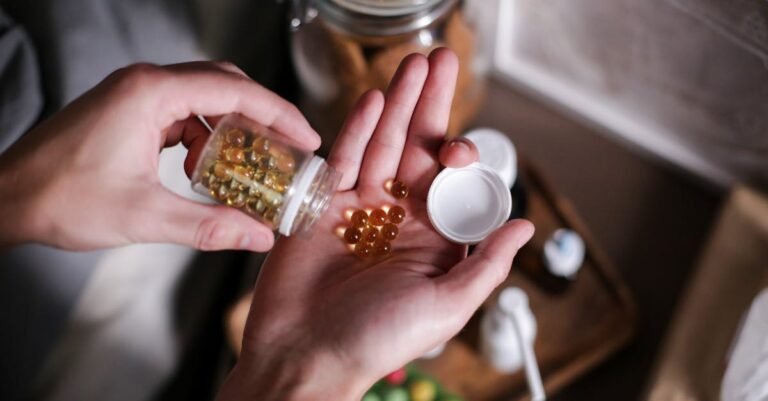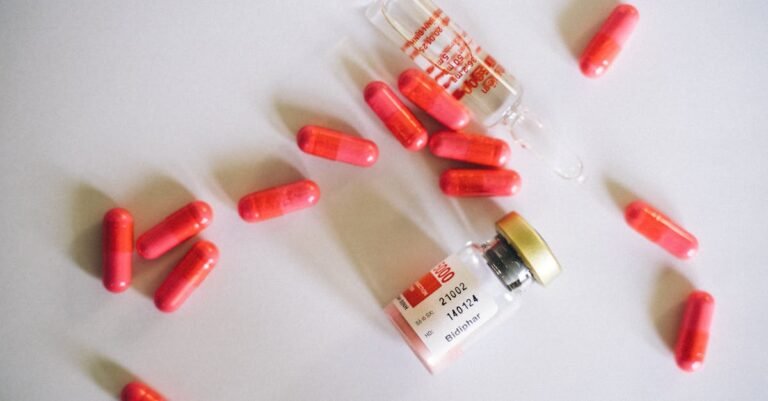Table of Contents
- Best Zinc Supplements for Men’s Health: Your Ultimate Guide
- Why is Zinc So Crucial for Men, Anyway?
- Are You Running Low? Signs of Zinc Deficiency in Men
- Navigating the Supplement Aisle: Types of Zinc Explained
- Choosing the Best Zinc Supplement: Factors to Consider
- Getting Zinc Naturally: Food First Approach
- Potential Side Effects and Precautions
- Conclusion: Powering Up Your Health with Zinc
- FAQs About Zinc Supplements for Men
Best Zinc Supplements for Men’s Health: Your Ultimate Guide
Hey guys, let’s talk about something absolutely vital for keeping us running smoothly: zinc. It might not grab headlines like protein or vitamin D, but trust me, this mighty mineral is a powerhouse, especially when it comes to men’s health. Think of it as the unsung hero working behind the scenes, involved in hundreds of bodily processes that keep you feeling strong, energetic, and, well, manly. But with so many supplements lining the shelves, how do you know which zinc is the right wingman for your health goals? Don’t sweat it. We’re going to dive deep into the world of zinc, explore why it’s so darn important for us fellas, and help you figure out how to choose the best supplement if you need one. Ready to unlock the power of zinc?
Why is Zinc So Crucial for Men, Anyway?
So, what’s the big deal with zinc? Why dedicate an entire article to this one mineral? Well, imagine your body is a complex machine. Zinc acts like a crucial spark plug, involved in over 300 enzymatic reactions. That means it’s helping to kickstart processes essential for everything from building DNA and proteins to healing wounds and keeping your senses sharp. But for men, zinc plays some particularly starring roles.
The Testosterone Connection: Fueling Masculinity
Alright, let’s get straight to it. Testosterone. It’s the hormone fundamentally linked to male characteristics – muscle mass, bone density, sex drive, energy levels, you name it. And guess what? Zinc is intimately involved in testosterone production. Studies have shown a clear link between zinc status and testosterone levels. Men with low zinc often have lower testosterone, and supplementing with zinc (if deficient) can help bring those levels back up. Think of zinc as a key ingredient in the recipe for healthy testosterone production. Without enough of it, the whole process can sputter.
Prostate Power: Keeping Things Healthy Down There
Your prostate gland actually contains higher concentrations of zinc than any other soft tissue in the body. Coincidence? Not likely! Zinc appears to play a protective role in prostate health. It’s thought to help regulate cell growth and potentially reduce the risk of certain prostate issues. While more research is always ongoing, maintaining adequate zinc levels seems to be a smart move for long term prostate wellness. It’s like having a dedicated security guard for one of your most important glands.
Immune System Warrior: Your Body’s First Line of Defense
Ever feel like you catch every single bug going around? Your zinc levels might be playing a part. Zinc is absolutely critical for a properly functioning immune system. It helps develop and activate T lymphocytes, which are crucial white blood cells that fight off infections and even abnormal cells. When zinc levels are low, your immune response can become sluggish, leaving you more vulnerable to colds, flu, and other infections. Keeping your zinc stores topped up is like ensuring your body’s defense forces are well equipped and ready for action.
Beyond the Basics: Skin, Hair, and Vision Health
Zinc’s influence doesn’t stop there. It’s also vital for maintaining healthy skin, promoting wound healing, and keeping acne at bay. Ever notice slow healing cuts or persistent skin issues? Low zinc could be a factor. It’s also involved in hair growth, and deficiency can sometimes contribute to hair loss (though many factors cause this!). And let’s not forget vision; zinc is concentrated in the retina and helps transport vitamin A, which is essential for good eyesight, especially in dim light. So, it’s not just about the big stuff like testosterone and immunity; zinc contributes to looking and feeling good all around.
Are You Running Low? Signs of Zinc Deficiency in Men
Okay, zinc is important, we get it. But how do you know if you need more? While a severe deficiency is less common in developed countries, mild or moderate deficiency can be surprisingly prevalent, and the signs can be subtle or easily mistaken for something else.
Common Symptoms to Watch Out For
Keep an eye out for these potential red flags:
- Getting sick often: Remember that immune connection? Frequent colds or infections could signal low zinc.
- Slow wound healing: Cuts, scrapes, or even pimples taking forever to heal? Zinc plays a big role here.
- Loss of appetite or changes in taste/smell: Zinc is needed for these senses to function properly. Food tasting bland? Might be worth checking your levels.
- Unexplained weight loss: Linked to appetite changes and metabolic processes.
- Hair loss or thinning: While often genetic, zinc deficiency can contribute.
- Skin problems: Acne, rashes, or dermatitis that won’t clear up.
- Low energy or fatigue: Zinc is involved in energy metabolism.
- Decreased libido or fertility issues: Remember the testosterone link?
- Mood changes or difficulty concentrating: Zinc also plays a role in neurotransmitter function.
It’s crucial to remember that these symptoms can be caused by many things. Don’t self diagnose! If you suspect a deficiency, the best course of action is to talk to your doctor. They can assess your symptoms, diet, and potentially order a blood test (though zinc levels in blood aren’t always the most accurate reflection of total body stores).
Who’s Most at Risk? Identifying Vulnerable Groups
Certain factors can increase a man’s risk of having lower zinc levels:
- Vegetarians and Vegans: Plant based sources of zinc are generally less bioavailable than animal sources, and plant compounds called phytates can inhibit absorption.
- Individuals with Gastrointestinal Diseases: Conditions like Crohn’s disease, ulcerative colitis, or celiac disease can impair nutrient absorption, including zinc.
- Those Who Have Had Bariatric Surgery: Changes to the digestive tract can affect absorption.
- People with Chronic Liver or Kidney Disease: These conditions can affect zinc metabolism and increase losses.
- Individuals with Sickle Cell Disease: They often have higher zinc requirements.
- Older Adults: Absorption may decrease with age, and dietary intake might be lower.
- Heavy Alcohol Consumers: Alcohol can decrease zinc absorption and increase urinary excretion.
- Athletes or Those Who Sweat Heavily: Significant amounts of zinc can be lost through sweat.
If you fall into one or more of these categories, paying extra attention to your zinc intake, either through diet or potentially supplementation after consulting a doctor, might be beneficial.
Navigating the Supplement Aisle: Types of Zinc Explained
So, you’ve decided a zinc supplement might be right for you (ideally after chatting with a healthcare pro). You hit the store or browse online, and suddenly you’re faced with a confusing array of options: zinc gluconate, picolinate, citrate, sulfate… what’s the difference? Does it even matter? Yes, it absolutely can! The type of zinc refers to the molecule it’s attached (chelated) to, and this can significantly impact how well your body absorbs and utilizes it.
Zinc Gluconate: The Popular Choice
This is probably the most common and often one of the most affordable forms you’ll find. It’s created by fermenting glucose. Zinc gluconate is generally well absorbed, although perhaps not quite as efficiently as some other forms like picolinate or citrate for some individuals. You’ll often find it in cold lozenges because it’s effective when used topically in the throat, but it’s also widely used in standard supplements. It’s a solid, readily available option.
Zinc Picolinate: High Absorption Hero?
Zinc picolinate involves binding zinc to picolinic acid. Some research suggests this form might be one of the most bioavailable, meaning your body can absorb and use it more effectively than some other types, like gluconate or citrate. Picolinic acid is a natural chelator produced by the body, which might explain its potential absorption advantage. If you suspect you have absorption issues or want to maximize uptake, picolinate is often considered a top contender, though it might be slightly pricier.
Zinc Citrate: A Well Absorbed Option
Zinc citrate binds zinc to citric acid. Studies indicate that its absorption rate is quite good, comparable to or even slightly better than zinc gluconate for some people, and often better tolerated (less likely to cause stomach upset) than zinc sulfate. It also tends to have a less metallic taste than gluconate, which can be a bonus if you’re sensitive. It offers a good balance of bioavailability and cost effectiveness.
Other Forms: Orotate, Acetate, Sulfate – What’s the Deal?
You might encounter other forms too:
- Zinc Orotate: Bound to orotic acid. Some proponents claim superior absorption due to how orotic acid helps transport minerals across cell membranes, but strong clinical evidence specifically proving its superiority over others like picolinate or citrate in humans is still developing.
- Zinc Acetate: Often used in cold lozenges alongside gluconate. It releases zinc ions readily in the mouth/throat. Its absorption as a general supplement is considered decent.
- Zinc Sulfate: An older, inorganic form. While it contains a good amount of elemental zinc, it’s generally considered less bioavailable and more likely to cause stomach irritation or nausea compared to chelated forms like gluconate, citrate, or picolinate. Usually best avoided unless specifically recommended.
- Zinc Monomethionine: Binds zinc to the amino acid methionine. This form is also thought to be well absorbed, partly because methionine itself is easily absorbed.
The key takeaway? Chelated forms (gluconate, picolinate, citrate, monomethionine) are generally preferred over inorganic forms like sulfate due to better absorption and tolerance.
Choosing the Best Zinc Supplement: Factors to Consider
Okay, you know the types. But how do you pick the *right* bottle off the shelf? It’s not just about the form; several other factors come into play.
Dosage: Finding Your Sweet Spot
More isn’t always better, especially with zinc. The Recommended Dietary Allowance (RDA) for adult men is 11 mg per day. Most supplements contain between 15 mg and 50 mg of *elemental* zinc (the actual amount of zinc in the compound). Check the label carefully for the elemental amount. For general maintenance or addressing mild deficiency, a dose around 15 30 mg is often sufficient. Higher doses (like 50 mg) might be used short term under medical supervision but increase the risk of side effects and long term issues like copper deficiency. Always aim for the lowest effective dose and stick within the Tolerable Upper Intake Level (UL), which is 40 mg per day from all sources (food + supplements) for adults, unless advised otherwise by your doctor.
Bioavailability: How Much Actually Gets Used?
As we discussed with the different types, bioavailability is key. You want a form that your body can readily absorb. Picolinate, citrate, and gluconate generally offer good bioavailability. Consider your individual needs – if you have known absorption issues, paying a bit more for a highly bioavailable form like picolinate might be worthwhile. If not, citrate or gluconate are often excellent choices.
Third Party Testing: Ensuring Quality and Purity
The supplement industry isn’t as tightly regulated as pharmaceuticals. This means product quality can vary wildly. How do you know you’re actually getting what the label says, without harmful contaminants? Look for seals from independent, third party organizations like USP (United States Pharmacopeia), NSF International, or ConsumerLab.com. These certifications indicate the product has been tested for purity, potency, and accurate labeling. It’s an extra layer of assurance that you’re investing in a quality product.
Added Ingredients: Bonuses or Unnecessary Fillers?
Check the “Other Ingredients” list. Some supplements might include beneficial additions, like copper (since high zinc intake can deplete copper) or other supportive nutrients. However, be wary of excessive fillers, artificial colors, binders, or potential allergens (like gluten, soy, dairy) if you have sensitivities. Sometimes simpler is better. Do you really need that magnesium stearate or titanium dioxide? Probably not. Opt for cleaner formulas when possible.
Getting Zinc Naturally: Food First Approach
Before jumping straight to supplements, remember that the best source of any nutrient is usually whole foods! A balanced diet can often provide all the zinc you need, plus a host of other beneficial vitamins, minerals, and fiber.
Zinc Rich Foods Every Man Should Eat
Load up your plate with these zinc packed options:
- Oysters: The undisputed champions! Just a few oysters can provide several times your daily zinc requirement.
- Red Meat: Beef, lamb, and pork are excellent sources of highly bioavailable zinc.
- Poultry: Chicken and turkey (especially dark meat) contribute good amounts.
- Shellfish: Crab and lobster are also great choices.
- Legumes: Chickpeas, lentils, and beans contain zinc, but bioavailability is lower due to phytates. Soaking, sprouting, or fermenting them can help improve absorption.
- Seeds: Pumpkin seeds and hemp seeds are nutritional powerhouses, rich in zinc.
- Nuts: Cashews, almonds, and pine nuts offer a decent zinc boost.
- Dairy Products: Milk, yogurt, and cheese provide zinc that’s fairly well absorbed.
- Whole Grains: Oats, quinoa, and brown rice contain zinc, though phytates can hinder absorption somewhat.
- Fortified Foods: Some breakfast cereals are fortified with zinc.
Aiming for a varied diet rich in these foods is the ideal foundation for maintaining healthy zinc levels.
Potential Side Effects and Precautions
While generally safe when taken appropriately, zinc supplements aren’t without potential downsides, especially at higher doses.
Too Much of a Good Thing? Zinc Toxicity Explained
Exceeding the Tolerable Upper Intake Level (UL) of 40 mg per day from supplements long term can lead to problems. Acute side effects of taking too much zinc at once often include:
- Nausea and vomiting
- Stomach cramps or pain
- Diarrhea
- Headaches
- Loss of appetite
- Metallic taste
More concerning is chronic high intake (well above 40 50 mg daily for extended periods). This can interfere with the absorption of other essential minerals, most notably copper. A resulting copper deficiency can lead to neurological issues, anemia, and weakened bones. High zinc intake may also negatively impact cholesterol levels (lowering HDL or “good” cholesterol) and potentially affect immune function paradoxically. Stick to recommended doses unless specifically guided by a healthcare professional.
Interactions with Medications
Zinc supplements can interact with certain medications:
- Antibiotics: Zinc can reduce the absorption of quinolone (like Cipro) and tetracycline antibiotics. Take zinc supplements at least 2 hours before or 4 6 hours after these medications.
- Penicillamine: Used to treat rheumatoid arthritis and Wilson’s disease, zinc can reduce its absorption and effectiveness. Separate doses are necessary.
- Diuretics: Certain diuretics (like thiazides) can increase the urinary excretion of zinc. Discuss your zinc status with your doctor if you take these long term.
Always inform your doctor or pharmacist about any supplements you are taking, including zinc, to avoid potential interactions.
Conclusion: Powering Up Your Health with Zinc
So there you have it – the lowdown on zinc and its crucial role in men’s health. From supporting testosterone levels and prostate health to bolstering your immune system and keeping your skin clear, this mineral is a true MVP. While getting enough zinc through a balanced diet rich in foods like oysters, red meat, seeds, and legumes should always be the primary goal, supplements can be a valuable tool for men who are deficient or at higher risk. When choosing a supplement, consider the form (picolinate, citrate, gluconate are often good choices), opt for a sensible dose (usually 15 30 mg elemental zinc), look for third party testing, and always chat with your doctor first, especially if you have underlying health conditions or take other medications. By understanding zinc’s importance and making informed choices, you can effectively harness its power to support your overall health and vitality. Here’s to keeping your internal engine running strong!
FAQs About Zinc Supplements for Men
1. Can taking zinc increase my testosterone levels?
If you are deficient in zinc, supplementation may help restore your testosterone levels back to a normal range. Zinc is essential for testosterone production. However, if your zinc levels are already adequate, taking extra zinc is unlikely to boost testosterone further and could even cause side effects. It’s best to get tested and consult a doctor if low testosterone is a concern.
2. When is the best time to take a zinc supplement?
Zinc is often best absorbed when taken on an empty stomach, about 1 hour before or 2 hours after meals. However, some people experience stomach upset this way. If that happens, taking it with a small meal (preferably one low in phytates and calcium, which can hinder absorption) is perfectly fine. Avoid taking it simultaneously with calcium or iron supplements if possible, as they can compete for absorption.
3. How long does it take for zinc supplements to work?
This depends on why you’re taking it and the severity of any deficiency. For issues like improving immune response during a cold, effects might be noticed relatively quickly (within days) if using lozenges. For correcting a deficiency and seeing improvements in symptoms like skin health, taste, or potentially testosterone levels, it might take several weeks to months of consistent supplementation to replete body stores.
4. Are zinc lozenges effective for colds?
Some research suggests that taking zinc lozenges (usually acetate or gluconate) at the very first sign of a cold may help shorten the duration and reduce the severity of symptoms. The theory is that zinc ions released in the throat can inhibit viral replication. However, results are mixed, and they can sometimes cause nausea or a bad taste. They aren’t a replacement for rest and fluids!
5. Can I get all the zinc I need from a multivitamin?
Most standard multivitamins contain zinc, often around the RDA (11 mg for men) or slightly more (e.g., 15 mg). For many men with a reasonably good diet, this amount might be sufficient for maintenance. However, if you have higher needs (due to deficiency, specific health conditions, or factors increasing risk), are vegetarian/vegan, or are aiming for a therapeutic dose for a specific reason (under guidance), a standalone zinc supplement might be necessary to reach the desired intake level.










